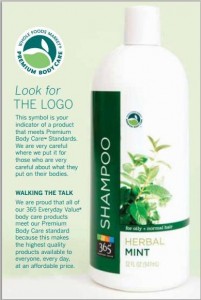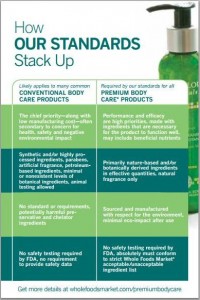These days, third party eco-labels can be often seen in various products. According to our textbook, there are currently around 300 eco-labels. The question is, what do these eco-labels really mean? Can we really trust them and are they assuring enough to make us feel that the product is safe and eco-friendly? A man named Kevin Owsley, who owns a company that produces carpet-cleaning fluid, recently tried to find a reputable organization that can grant his company an “eco-seal” of approval. He was able to find one, but this organization instantly granted him a “green diploma”, no questions asked. This got Kevin quite confused and he debated if endorsing this “eco-seal” on his cleaning fluid would mean anything to his customers. I consider this as one of the problems eco-labels have. Most customers don’t really know what these eco-labels mean. Just as long as they see that stamp of approval, they immediately assume it is a “good” product. At the same time, companies might be confusing customers by making them believe that their product is actually an eco-friendly product through that stamp of approval, but in reality, it’s just a method for them to show off to their customers that they are sustainable (but actually not). In other words — green washing. Despite all this, I was browsing through Whole Foods’ company blog and they’ve come up with a new eco-label, which I think serves as a good example of a legitimate and believable eco-label.
Whole Foods is widely known for their high quality and organic products and their strong commitment to corporate social responsibility. These company values highly differentiates them from any other grocery chain and this makes them highly believable up to this moment as they meet the standards they have promised to their customers. Recently, they have developed a new standard/eco-label called, “Premium Body Care.” It astonishes me that they are aiming to provide not only organic and natural food products, but they have branched out to their body care products as well. This shows their commitment to providing the best quality of all products to their customers and how they genuinely care for their well-being as well. Whole Foods’ product line called 365 Everyday Value already have this eco-label and can also be bought at affordable prices, despite their high quality (See image below).
I’ve also read the Whole Foods website and it says that company experts spent years examining ingredients according to the strictest criteria for safety, efficacy and impact on the environment. They are continuing to do this for all ingredients as they have found more than 420 ingredients that do not meet their standards.
If you look closely as to what the image says above, it compares conventional body product standards and Whole Foods’ premium body care product standards and you can evidently see a significant difference. For Whole Foods’ body care products, they don’t only function well, but even offer nutritional benefits. They also contribute to a positive impact to the environment, which again highlights one of their company values. Having read the standards they have set for the “Premium Body Care” eco-label, I am convinced that this is not a questionable label. Also, Whole Foods put enough effort to inform their customers through their company website about this label and what it really means to have this seal.


